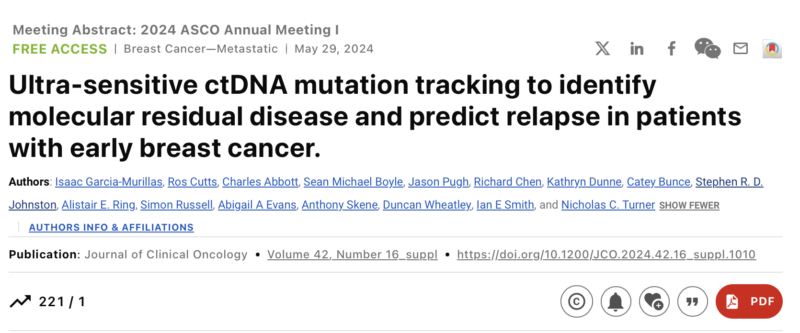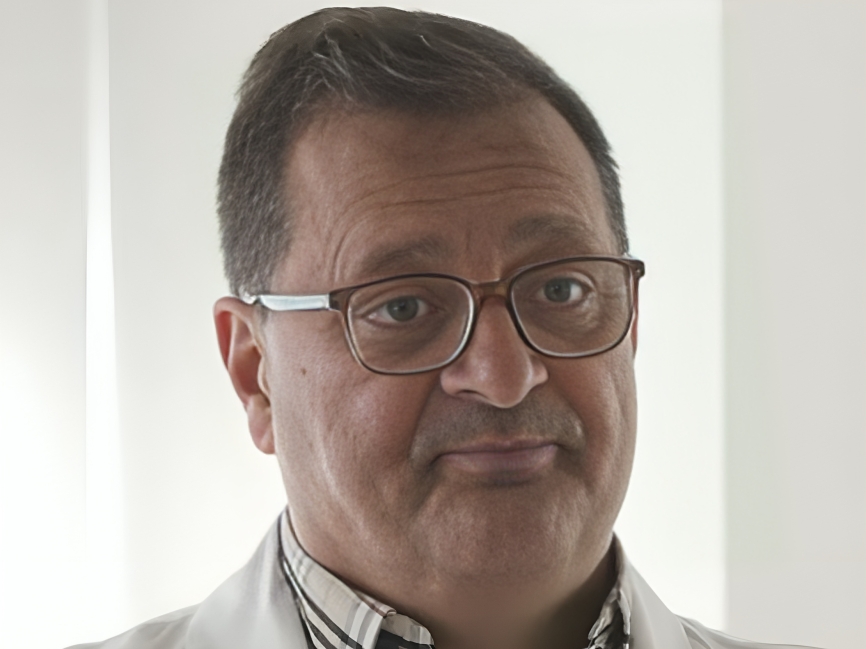Miguel Bronchud, Co-Founder and Advisory Board at Regenerative Medicine Solutions, shared a post on LinkedIn, about recent paper published in Journal of Clinical Oncology:
Authors: Isaac Garcia-Murillas, Ros Cutts, Charles Abbott, Sean Michael Boyle, Jason Pugh, Richard Chen, Kathryn Dunne, Catey Bunce, Stephen R. D. Johnston, Alistair E. Ring, Simon Russell, Abigail A. Evans, Anthony Skene, Duncan Wheatley, Ian E. Smith, Nicholas C. Turn.

”Liquid biopsy (LB) to detect early breast cancers? …. as comparative and sequential follow up of women with high dense mammograms?
LB is a non-invasive diagnostic technique that allows the analysis of biomarkers in different body fluids, particularly in peripheral blood and also in urine, saliva, nipple discharge, volatile respiratory fluids, nasal secretions, breast milk, and tears.
In colorectal cancer (CRC), liquid biopsy has emerged as a powerful and attractive tool for detecting minimal residual disease (MRD), monitoring early relapse, profiling molecular characteristics, and predicting therapeutic response. While blood tests are better than nothing, they cannot be recommended to replace established CRC screening methods. This week, the U.S. FDA approved the first use of a liquid biopsy (blood test) for colorectal cancer screening (see web pages of Guardant).
In breast cancer, novel ultrasensitive liquid biopsy may be predictive of breast cancer recurrence up to years prior to relapse in high-risk patients with early breast cancer, according to recent findings presented by Isaac Garcia-Murillas et al at the 2024 ASCO Annual Meeting (Abstract 1010) and conducted at the ICR/Royal Marsden Hospital in London. NeXT Personal detected breast cancer relapse with a long lead-time over clinical relapse, and strongly associated with relapse free survival. The assay demonstrated high rates of ctDNA detection at diagnosis.
Although no method of liquid biopsy is yet available as screening or early detection for the follow up of dense mammograms, the subject in the early breast cancer detection context has been recently well reviewed by Chilean scientists. In this systematic review (SR), 136 articles met the selection criteria, representing 17 709 patients with BC. However, 95.6% were case-control studies. In 96.3% of cases, LB was performed in peripheral blood samples. Most of the articles were based on microRNA (miRNA) analysis. The mean MQ score was 25/45 points. Sensitivity, specificity, and area under the curve values for specific biomarkers (individual or in panels) have been found but are not yet robust enough for clinical use.
Perhaps one day sequential liquid biopsies (including epigenetic markers) might help us to identify those high risk dense mammograms cases where biopsies are most cost effective?
This technology might (for example) help to detect early epigenetic changes related to the immune escape mechanisms of early neoplasms during carcinogenesis- sparing lots of useless or non specific breast biopsies in women (often young) at risk because of dense mammograms (or high Bi-RAD values). BI-RADS (Breast Imaging-Reporting and Data System) is a risk assessment and quality assurance tool developed by American College of Radiology that provides a widely accepted lexicon and reporting schema for imaging of the breast.”
Read further.
Source: Miguel Bronchud/LinkedIn


